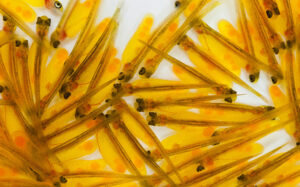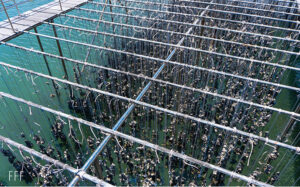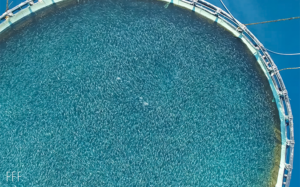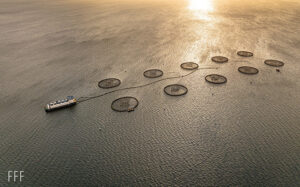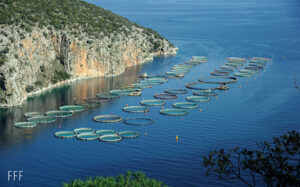The value of veterinarians in ensuring sustainability for Africa’s fast-growing aquaculture industry
Sub-Saharan Africa is enjoying an aquaculture boom — with fish health and welfare services moving in turn to meet the sector’s needs and ensure sustainable growth. In an interview, veterinarian Brandon Spolander, BVSc, MRCVS, SAVC, MSc, owner of Aquavet Africa, talks about engaging with the growing industry and addressing important gaps.
News & Trends
Alternative, ethical and locally sourced feeds can help shape the future of sustainable aquaculture
Dr. Daniel Merrifield from University of Plymouth, who leads a team which has published extensive work analyzing new feed ingredients and has helped the industry bring new products to market, shares his vision of a greener, more ethical future.
Artificial intelligence highlights which salmon eggs have the best chance of success
Software using artificial intelligence is set to help Atlantic salmon producers in Chile make better decisions about the chances of eggs developing successfully into healthy fish, reducing the productivity losses in early fish development which have significant effects on the aquaculture industry.
Scientists closing in on ways to boost immune mechanisms of mollusks
Farmed mollusks are threatened with a number of diseases, but given that — unlike vertebrates — animals like mussels and clams don’t have antibodies or T or B cells to fight infection, coming up with health interventions has often proved elusive.
Better net-cleaning tech needed to contain harmful particles on fish farms — study
Cleaning the nets of pens on fish farms at sea releases millions of harmful biofouling particles that not only spread between pens but into other farms up to 5 kilometers away too, a study in Norway has revealed. But despite the concerning results, help is at hand for producers.
Mediterranean heatwaves putting farmed finfish under strain
The welfare of farmed seabream and sea bass in the Mediterranean is threatened by marine heatwaves, which are becoming increasingly frequent in the region.



